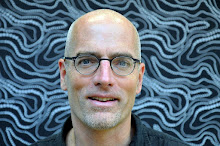Lev Manovich had some interesting takeaway points from his recent visit to Facebook Korea that highlight familiar tendencies in contemporary media studies. The scare quotes serve as signposts for where he's headed in his post, as they designate the terms he deems obsolete in the Facebook era: "ideology," "control," "dominant logic," and, of course, "global capitalism" (as in: "There is no 'master plan' or 'global capitalism'"). This is a short step away from the familiar Thatcherian observation about "society." All there are, in the end, are particularities combining in assemblages whose activities are spontaneous, emergent, and unpredictable -- irreducible to the crude terminology of critical theory and free of any discernible structuring logics. Ideology is dead: long live the new (?) ideology of new materialist pluralism.
I suppose there are two ways to take these claims: the more reasonable (that ideology is complex and multi-faceted, but it still exists, that abstractions alway leave something out, but retain a certain utility) or the wholesale ingestion of the Kool-aid (once upon a time people may have been duped and propaganda existed, and capitalism was a thing, but now everything is so complex and particularized that abstractions themselves no longer have any use at all, everything is up in the air and free -- and because of that wonderfully liberating). There is certainly plenty to be said in the support of the first interpretation, but the second one seems to fit better with the conclusion of Manovich's post:
"The future is open and not determined. We are all hacking it together. There is no "master plan," or "global capitalism," or "algorithms that control us" out there. There are only hundreds of millions of people in "developing world" who now have more chances thanks to social media and the web. And there are millions of creative people worldwide adapting platforms to their needs, and using them in hundreds of different ways. To connect, exchange, find support, do things together, to fall in love and to support friends. Facebook and other social media made their lifes more rich, more meaningful, more multi-dimensional. Thank you, Facebook!"
Wow -- this is a veritable paean to Facebook. Clearly there are interesting things taking place on Facebook, and there are plenty of constructive uses for it, but it seems a bit extreme to portray it as the savior of love, support, and the meaning of life. Not long ago, it seemed to me that perhaps the moment had passed for emphasizing a critique of the flip side of the benefits and conveniences of the online commercial world, because the moment of an unquestioning cyber-utopianism has passed, but it seems alive and well.
To paraphrase Adorno:
Just as the ruled have always taken the morality dispensed to them by the rulers more' seriously than the rulers themselves, the defrauded new media enthusiasts today cling to the myth of success still more ardently than the successful. They, too, have their aspirations. They insist unwaveringly on the ideology by which they are enslaved. Their pernicious love for the harm done to them outstrips even the cunning of the authorities

